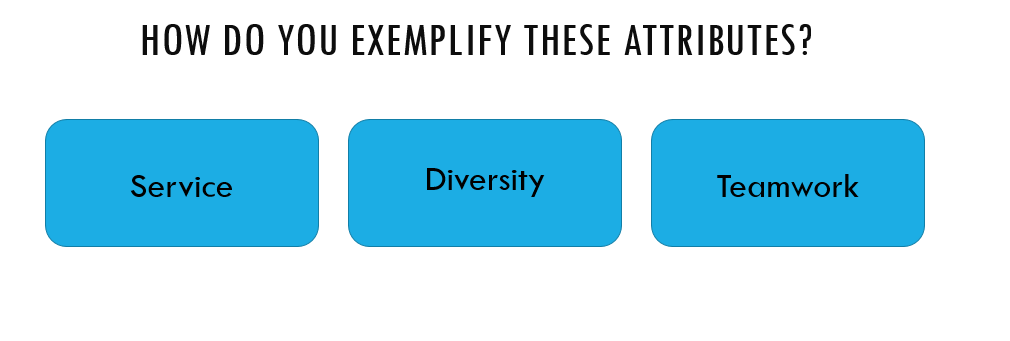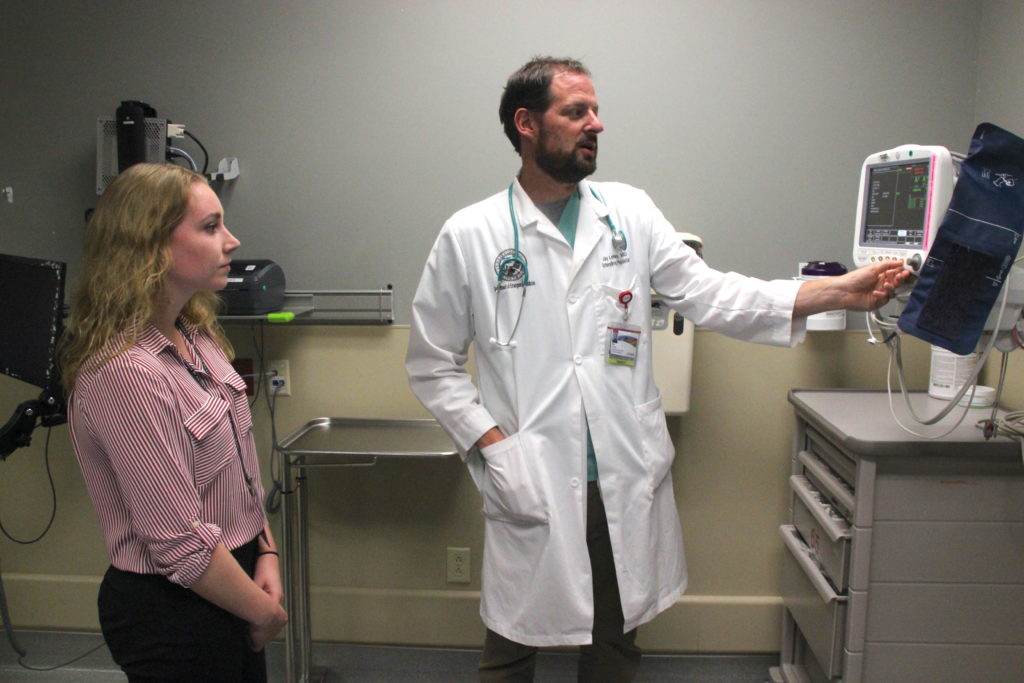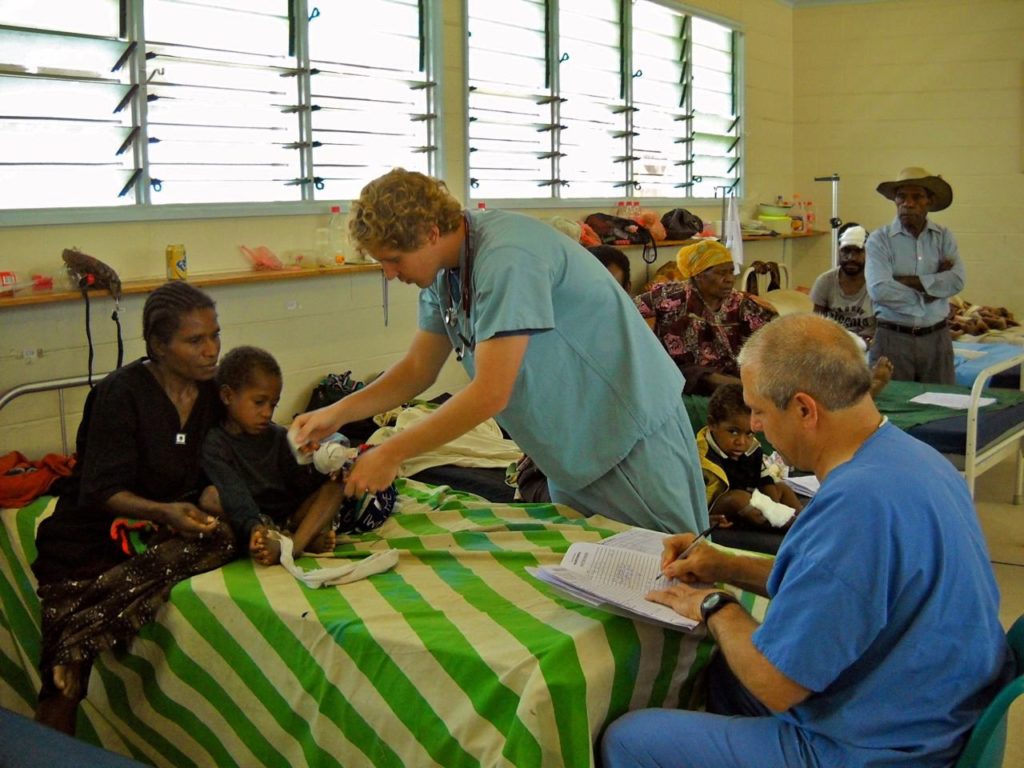[vc_row][vc_column][vc_column_text]By: Alessandra Santiago
As future healthcare professionals, we recommend that pre-med students put a premium on gaining experiences that confer a lens into the patient perspective (of which there are many).
At CU Denver, we seek students who have applied what they’ve learned in the classroom to outside experiences, especially those that expose them to the challenges and attributes of working with different cultures or socioeconomic groups.
In this article, we will review what “gaining a patient perspective” actually means in terms of your trajectory as a future healthcare provider and how to convey it in your application materials. According to Senior Admissions Professional Karina Goodwin, a wide variety of patient perspective experiences can tell us whether an applicant would be a good fit for our commitment to diversity and teamwork.
“We’re looking for what experiences you have done that can tell us who you are. How have they shaped who you are? Since we’re such an interpersonal campus, we want to see if you place nice in the sandbox. So what experiences have you had that show us that?”, said Goodwin.
Our Admissions Officers encourage applicants to demonstrate a level of introspection in their primary essays that they may not be able to convey in the list of extracurriculars. Beyond what research or shadowing experiences applicants have done, we look for how applicants exemplify the attributes of service, diversity, and teamwork through their patient perspective experiences.

The Highly- Personal Patient Perspective Experience
In the way of gaining practical patient perspectives, we see many applications covering the gamut of in-hospital care: from shadowing physicians, scribing, or becoming certified as an NR-EMT.

However, these are not the only types of experiences that confer patient perspectives.
Think back through the times in your life where you have been called to step up to provide care. Maybe you were a caregiver for a sick family member. Maybe you saw a close friend battle an illness. Maybe you worked for a lifeguard over the summers and saved a drowning child.
Describing the impact of these experiences on your path to medicine can be equally as valid as describing the time you spent shadowing in the Emergency Department.
What was outcome of those experiences? How did they affect you? Did you witness the kind of care these patients received? If so, how did that impact you? These are all very important questions to have answered, as they let Admissions Officers get a sense for where you come from in your experience with medicine.
Working with Different Cultures or Special Interest Groups
On top of highly-personal experiences with medical care like the ones above, there are many patient experiences that can be found right in an applicant’s own backyard. According to Goodwin, some of the best experiences with patient care can be found right around the corner.
“Students can go volunteer at a clinic downtown. Or, work with an underserved population or rural population where it’s giving them insight into a different culture that they don’t have much experience with. And that could lead right into patient perspective.”
The key to all of these kinds of personal and nearby experiences is to maximize the opportunity to look at medicine from a completely different perspective: either from working hands-on with a patient in a caregiving capacity, or working under physicians that serve in specific communities.
Working or volunteering in specialized clinics, like Planned Parenthood, or with underserved populations can provide applicants a breadth of exposure to the types of patients that may walk into their practice when they become physicians. No amount of classroom learning will provide this level of interpersonal patient care experience.

International and Rural Patient Care
For students inspired by the wide world found outside of their neighborhood, studying or working in medicine abroad during a gap year may be a path that they choose to pursue.
Other students may be called to pursue clinical experiences in a hospital in a third-world country to experience what healthcare is like in less-equipped field hospitals.
Here at CU Denver, we often see students who have worked in rural Colorado. Shadowing in a remote hospital in the Rocky Mountains can give applicants the opportunity to see what life is like there for patients whose daily concerns are vastly different than their own, living closer into major metropolitan areas.
A Final Word
In the CU Denver Admissions Office, we love reviewing applications that go into great depth about the experiences that gave an applicant an emotional connection to medicine. Knowing very clearly why a student was pushed to medicine makes an application read more maturely in their thought process behind why an applicant wishes to become a physician.
Do not underestimate the amount of personal reflection that this process requires. Medicine is a field that demands a real, deep, and highly-personal connection to the field and the people in it.
And, that’s exactly what we look for: applicants who have completed real, personal reflection into why working with many types of patients and care-giving (in all its forms) led them to medicine.
At the core of being a doctor, you are demanded to demonstrate compassion to your fellow man, and a profound empathy to the patients you serve. This is the gift of pursuing patient perspective experiences.
The Take Away
It is critical for med school applicants to have experienced the other side of the doctor-patient continuum. Allow your schooling and extracurriculars to be the foundation from which you foray into the human-side of medicine. Becoming a highly compassionate doctor begins with experiencing patient perspectives.
Want More Medical School Application Hacks? Sign Up Below to Receive Our Pre-health Newsletter!
Contact Form
